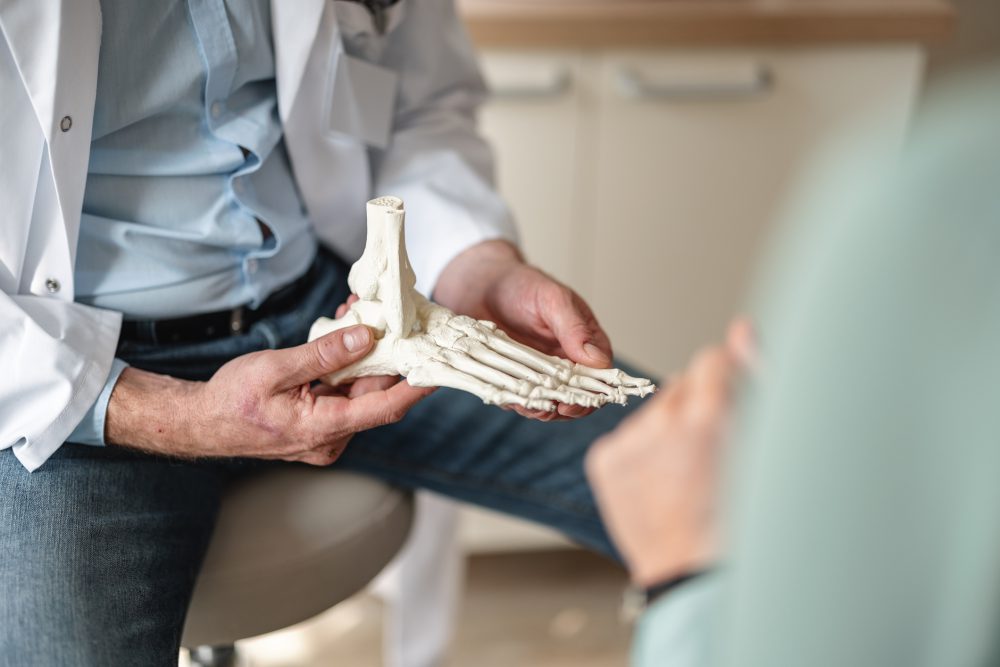Plantar Fasciitis
Preventing plantar fasciitis
Some people are more likely to get plantar fasciitis, including men aged 40-70 and people with high arches or flat feet. However, there are some factors you can control that may help prevent you from getting plantar fasciitis, including:
- Avoid running on uneven surfaces.
- Lose weight to take stress off your feet.
- Reduce long distance running if you notice symptoms.
- Stretch your Achilles tendon if it is tight.
- Wear shoes that provide good support.


Healing plantar fasciitis
Non-surgical treatment options will usually improve your symptoms of plantar fasciitis. Your doctor may recommend:
- Applying ice twice each day.
- Heel stretching exercises.
- Medication, such as ibuprofen, to reduce pain and swelling.
- Resting your feet for a week or more.
- Shoe inserts to pad the heel area.
- Splints, worn at night to stretch the fascia.
- Switching to shoes with better support.
Other, more advanced treatments, may be needed if your plantar fasciitis does not improve. These include:
- Steroid shots in your heel.
- Wearing a boot cast to keep pressure off your heel.
- Wearing custom made shoe inserts called orthotics.
Meet Your Foot & Ankle Surgeons
Meet Your Non-Surgical Orthopaedic Doctors
Contact Us
Schedule an appointment with Sports Medicine
Do you think have plantar fasciitis? Schedule an appointment with our Sports Medicine physicians for a treatment plan tailored to you. Call (859) 212-5600 to make an appointment.
Surgical Options
If surgery is necessary, our physicians can provide a referral to one of our affiliated orthopaedic surgeons. For more information on surgical options, please contact us at [email protected].




